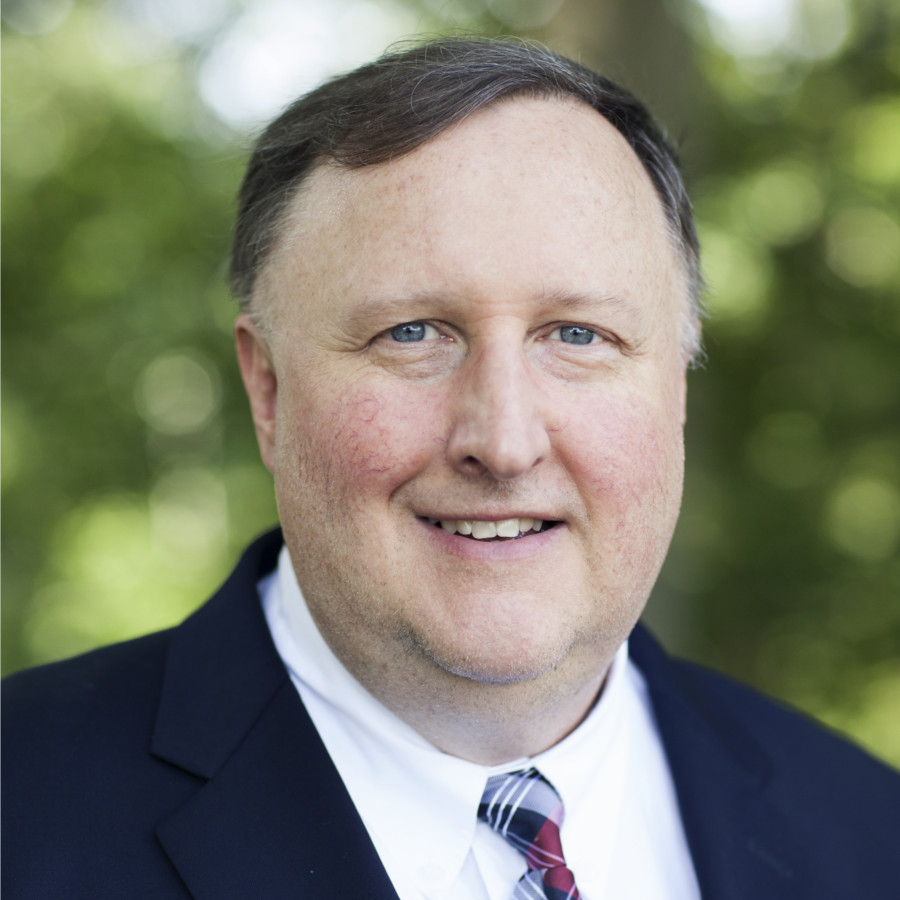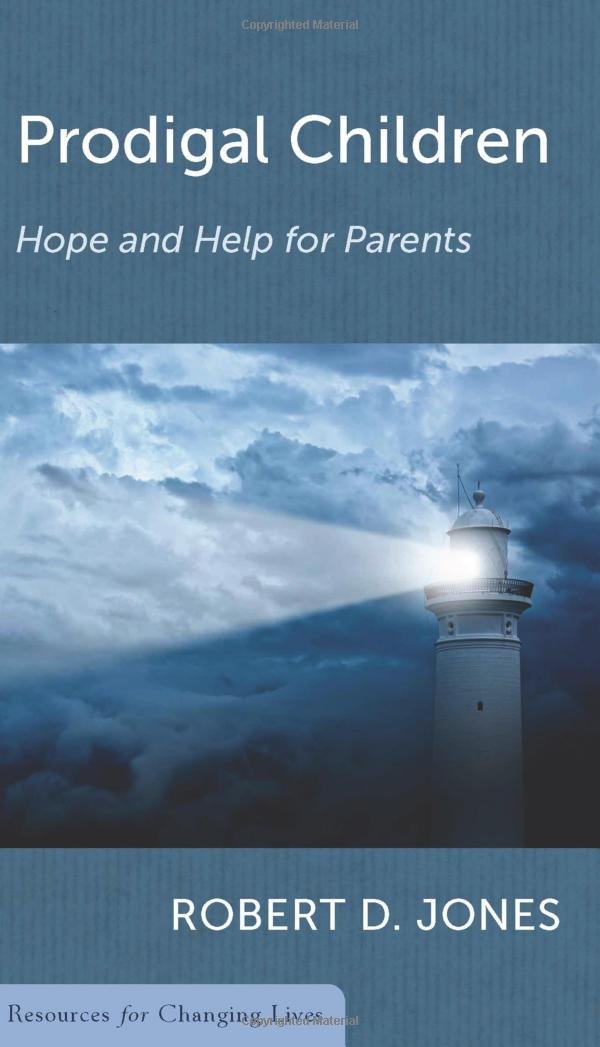Hi, I’m Fred Zaspel, editor here at Books At a Glance. When I noticed the titles of P&R’s soon publication of two mini-books by Robert Jones, I wanted immediately to interview him. Each booklet addresses a problem that affects many. The two titles are, first, Prodigal Children: Hope and Help for Parents, and the other is Why Worry? Getting to the Heart of your Anxiety. They are part of P&R’s excellent series of booklets, Resources for Changing Lives. Today we will talk to Dr. Jones about Prodigal Children: Hope and Help for Parents.
Bob, welcome, and congratulations on these two new booklets.
Robert Jones:
Thank you, Fred, so good to talk with you again.
Zaspel:
Okay, Prodigal Children: Hope and Help for Parents. What’s this all about? And what is the contribution you’re hoping to make?
Jones:
This is a brief booklet written for Christian parents whose children have turned away from the faith or who have been involved with all sorts of activities that would be not what they raised their kids to be. It was a contribution that I wanted to make to the counseling community because there isn’t a lot written from that Christ-centered perspective, at this point.
Zaspel:
How did this booklet come about?
Jones:
I was asked to speak as a plenary speaker at a biblical counseling conference several years ago, the Association of Certified Biblical Counselors, and the theme had to do with compassionate care for those who struggle with homosexuality. As one of the plenary addresses, they wanted me to speak on the matter of helping the family where a son or a daughter, for example, or any loved one within the family, has chosen a homosexual lifestyle. I put that talk together and delivered that, and then afterwards I had further conversations with others, including the publisher, recognizing that there would be value in expanding this. But one of the most helpful things I did to prepare for the plenary talk was to interview people that I knew as well as a few other contacts that were given to me of parents who have had children who have committed to a gay or lesbian lifestyle, and it was very informative. That’s what led to the booklet.
Zaspel:
I’d like to highlight a couple of points you made that struck me as especially important, and maybe you can give us just a taste of it here. The first had to do with just where parents ought to find their strength, security, and identity. Talk to us about that.
Jones:
As a pastor, Fred, you also probably can relate to the power of the Scriptures to speak into crisis situations. And so, as I thought about the kind of situation parents face, the imagery of Psalm 46, a kind of earthquake imagery with which that Psalm begins, it really struck me. And as I thought about that more and more I realized that talking to some of the parents, some of the imagery they were providing for me had that kind of feel of a cataclysmic thing that’s gone on in their world. I think all of us who are parents are concerned when our kids might fail a class, or disobey, or have a fight with someone, or something like that; but when you’re talking about earthshaking things like a person actually turning away from the Christian commitment that we’ve raised a child to follow, that’s so distressing. So I think of Psalm 46.
The other one that I highlight as just one of the parts of this booklet is Psalm 27, where we find the psalmist saying, “though my father and mother forsake me, the Lord will receive me.” So, I simply reversed the direction, there, and thought about those times, as a father and mother, that your child would forsake you and forsake the faith that you’ve raised your child with. And the answer there is the Lord will receive me.
Zaspel:
Another point you made had to do with the respective responsibilities of parents and their children. Give us a brief look at that.
Jones:
This is probably one of the most common problems that I’ve faced in talking with parents whose children go astray. Even when they’re still within the home, but particularly, as the booklet focuses here, on adult children when they are outside the home. And it’s a problem of owning the guilt of your son or daughter’s choices. This is so common, and I run into this all the time. It’s caused a bunch of problems for the parents and it creates a bit of a shame issue going on within the church, and embarrassment and let it be known that my kids have turned away from the Lord, and that kind of thing, because there’s this tendency we have, I think, to blame ourselves. And I think, as you study the Scriptures, there is so much here that we could talk about – I’ll just mention a passage or two. Probably the most startling one for me has been Isaiah 1:2, the parallel of God the Father, as God fathers and parents Israel. In that passage the prophet has God saying, “Hear O heavens, listen O earth, for the Lord has spoken,” and here’s the line from our God: “I have reared children and brought them up, and they have rebelled against me.” And if you take this logic that says that a parent is responsible for a child’s choice, in terms of following the Lord or not, in life, then that would mean that God the Father is a failure as a parent. And so, we are obviously not going to go to that kind of conclusion. And so, as we look at that passage and so many others, we find the responsibility laid upon children, and particularly adult children, to make their own choice to follow the Lord. I’m just trying to help parents recognize that maybe they weren’t faultless, none of us are; maybe there’re ways in which we have not been the best parents, because none of us have been; but, to own responsibility for your children’s choices, particularly the serious directional choices in life, would be unwise for you. So, we try to help parents not to on that kind of guilt.
Zaspel:
Our daughter suffered physically greatly for many years, and we finally lost her. As awful as that extended time and the eventual loss was, I have often given thanks to God that she belonged to Christ and safely belongs to him still. The anguish of parents with unbelieving children I think must be the very worst. We have to exhort such parents to trust God. But for them, what does that look like and how can you steer them be thinking in right ways that will enable them to trust God?
Jones:
Let me just affirm what you just said. I don’t know of anything that would be more heart-wrenching. I probably wouldn’t even say when a spouse turned away from the Lord, I’m not sure that is as heart-wrenching as it would be to have your own child that you’ve invested your time and energy in to turn away from the Lord.
What does that look like? What does that really mean, to trust in God? I think it means you’re going to have to be able to cling to truths in Scripture. I’ve been helped; and, Fred, I suspect you have been, too, by a common friend, probably mentor in our lives, the late Jerry Bridges. His triad of God being sovereign, wise, and good, and all the truths in Scripture that surround that triad have just been very powerful to the parents that I’ve talked to. And God’s Word, itself. And then, of course, in the context of the church, a supportive community where God’s Word is taught, not only publicly, but men and women come alongside of these parents. I know in one of the cases that I talk about in the book, the one man and his wife who are dealing with this and their son had committed to a homosexual lifestyle, just talked about how powerful the role of the church was in his life. These were church leaders who had not experienced this before. This was a small church, and what it drove them to do was to listen and then to study and to pray and he would say that was a major means of God bringing strength to him. So, the body of Christ surrounding him, and the Word of God, and just owning the fact that this is going to take some time for you to grow in your ability to trust the sovereign, wise, and good God.
Zaspel:
We’re talking to Dr. Robert Jones, professor of biblical counseling at The Southern Baptist Theological Seminary and author of the new very helpful booklet: Prodigal Children: Hope and Help for Parents. This is a unique and very helpful resource that deserves to be made available at your church book table and tract rack all the time.
Bob, great to talk to you, and thanks so much for your good work.
Jones:
Fred, thank you

